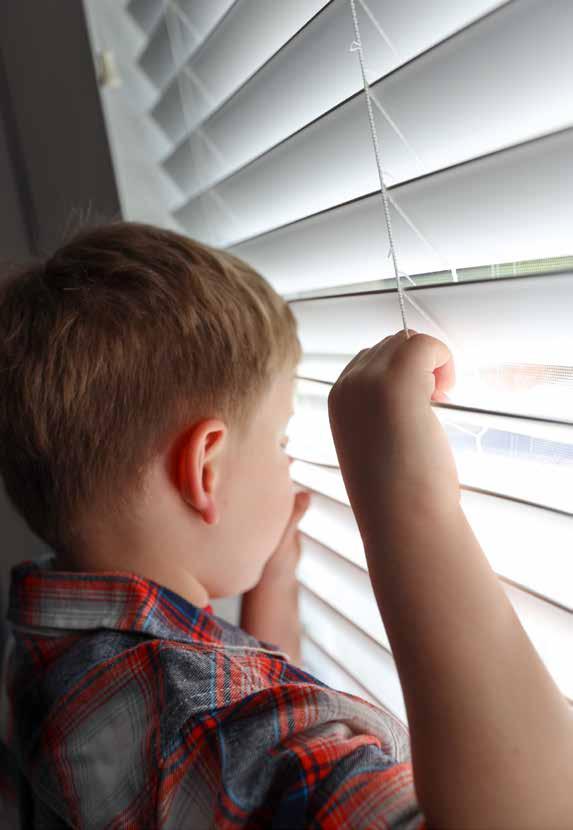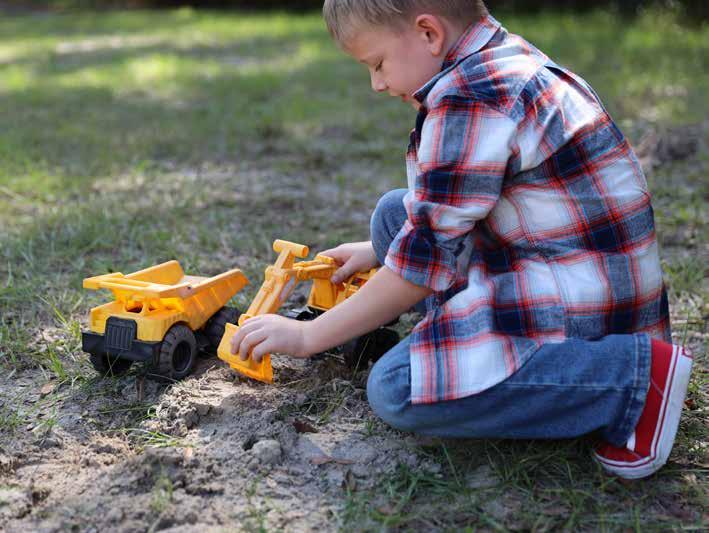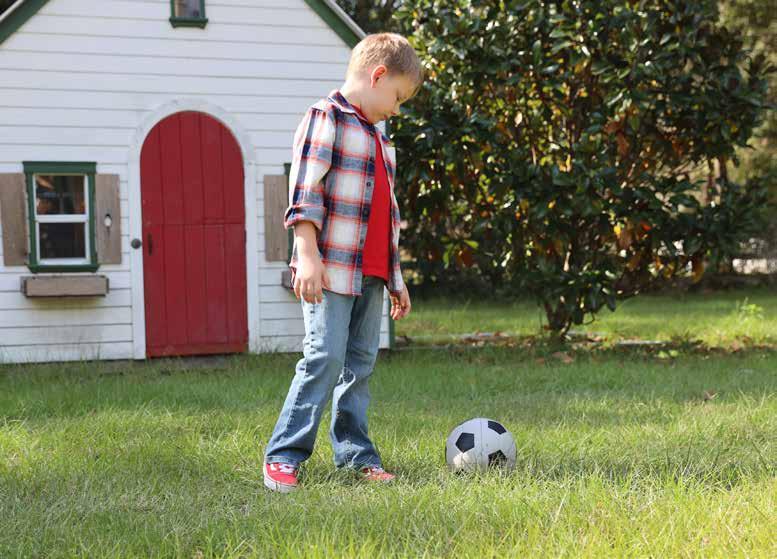
5 minute read
family
Nothing conjures images of families gathering ‘round quite like December does. But during the holiday season, some parents and children are struggling with the emotional and logistical hurdles of co-parenting.
Carol Jordan, Ph.D., LMFT, is a licensed marriage and family therapist who has been practicing in Ocala for 25 years. She says the golden rule of co-parenting is consideration.
“It comes down to being cooperative, sympathetic and understanding to each other. Kids need a relationship with both of their parents. That is beneficial to their development, their self-esteem and just knowing they’re loved by both people. One person, at some point, may have a special request they want to make. For the one who is being asked, it’s nice to be flexible and give in. That begins a pattern of cooperation, and in the end, it results in a better relationship,” she says.
Playing nice may prove di cult for parents who are newly divorced and still feeling out their new relationship while dealing with new kidswapping schedules.
“Most people, when they have the divorce, have suggested guidelines for visitation,” Dr. Jordan says. “They will usually include a schedule for the holidays that are pretty specific. In the time when you’re trying to figure out how nice the other person is going to be—frequently parents are sort of unhappy after the divorce and don’t trust each other—stick to the guidelines. Other parents are still friends and are much more flexible. The first year is tense, but if it goes well, it will make the next year easier.”
The first year without both parents in the house is tough. The key is to acknowledge it, Dr. Jordan says, and discuss the situation with the children without giving details they’re too young to understand. Also, adjust traditions accordingly.
“Assure them both of their parents love them and want to be with them, and that they want them to have a good time at both houses. If a family tradition involves grandparents and cousins and you live in a town where all these people are nearby, maybe you want to continue those. If you’re in a city by yourself and you don’t have that support around, maybe you want to start a new tradition like taking a trip,” Dr. Jordan says. “Starting a new tradition that doesn’t involve the family when both parents were together can keep kids from looking at that empty chair and wondering what the other parent is doing right now.”
And despite the discomfort of the first year apart, it’s more important than ever to be in touch about things that may seem trivial, like presents. Specifically, don’t turn them into a contest for the kids’ a ection— this can turn toxic quickly.
“Really make an e ort not to compete with each other for who is going to buy the biggest or the most presents. Just try to complement each other’s selection, because that competition is a bad precedent. It might be with presents or activities, like one parent says, ‘I’m going to make their time at my house better than their mother’s by taking them to
Disney World.’ It’s nice for them to have a good time but not out of vindictiveness or to outdo the other person. Talk to each other about what you’ll buy the kids so you don’t make unnecessary duplications. I’ve seen parents send each other a list and say, ‘Please let me know if you already have any of these things just so I don’t duplicate them,’” says Dr. Jordan.
What about spending the holidays together as a family, even though the parents are no longer in a relationship? Although some parents may worry they’ll give their children false hope for a reunion, spending a holiday together will likely do them good.
“If the parents can be in the same room, be pleasant and enjoy seeing the kids open the presents, I think right from the beginning that would be great. It’s also nice if both parents can still help children pick out a present for the other parent, and both parents should continue to encourage that.”
As children get older, they may start asserting their own opinions about where they want to spend their holidays. Should teens get to choose, or should parents reinforce their existing plans?

“It’s not always about which parent they like best—it may be which cousins they like best or which parent will let them do what they want to do,” says Dr. Jordan. “I strongly believe both parents should encourage sharing so they both have the opportunity to spend time with the kids. If both parents encourage that, it’s more likely to happen. Encourage them in the same way you would want the other parent to do for you.”
Even seasoned co-parents can run into conflict during the holidays, when schedules are harder to keep and each parent finds their time even more valuable than usual. The key to being antagonistic, they need to look at the guidelines and just follow them—any requests to the other are likely to be rebu ed,” Dr. Jordan says. “If you can easily do it and it doesn’t alter your plans, that can start the ball rolling by being fl exible and being willing to accommodating during last-minute changes at these times, well, depends on the parents’ relationship.
“The e ort of co-parenting is the central thing here. If they are very accommodate the other with the idea that eventually you will have a request, too. You’re taking a chance that it will be reciprocated. I don’t say accommodate at all costs, and one person can’t always accommodate the other. No parent has the right to change anything at any time.”
One thing Dr. Jordan says many parents don’t consider is that, even though they may have separated from their spouse, that doesn’t mean they can’t keep healthy relationships with their ex-spouse’s family.
“If you’re divorced and you still like his parents, and you’re not particularly friendly with him, you can invite those grandparents or cousins to join you and that sort of allows his family to interact with your kids without causing any issues,” she explains.
Of course, time with the child for one parent means time without for the other. Parents should make sure they’re using their time without the kids to enjoy themselves and keep any loneliness at bay.

“The parent who is alone looks at the rest of the world, seeing them all together with their families, and they may feel they’re all by themselves. Make yourself opportunities by doing something you enjoy that will keep you from sitting at home and feeling sorry. For example, if you like musicals you might see The Nutcracker. Look for things you’ve never done before or things your kids or exspouse wouldn’t have wanted to do.”
Ultimately, the people who benefit most from good co-parenting are the children. And perhaps a little holiday cheer between parents would brighten everyone’s season?
“The most important suggestion I would have is for parents to avoid confrontations when they’re together or when switching the kids,” says Dr. Jordan. “Most kids, if they could verbalize it, would say the best holiday present would be for everyone to just get along. The lack of tension allows everyone to relax a little more and enjoy the season, and it’s incumbent on the parents to set that mood.”











